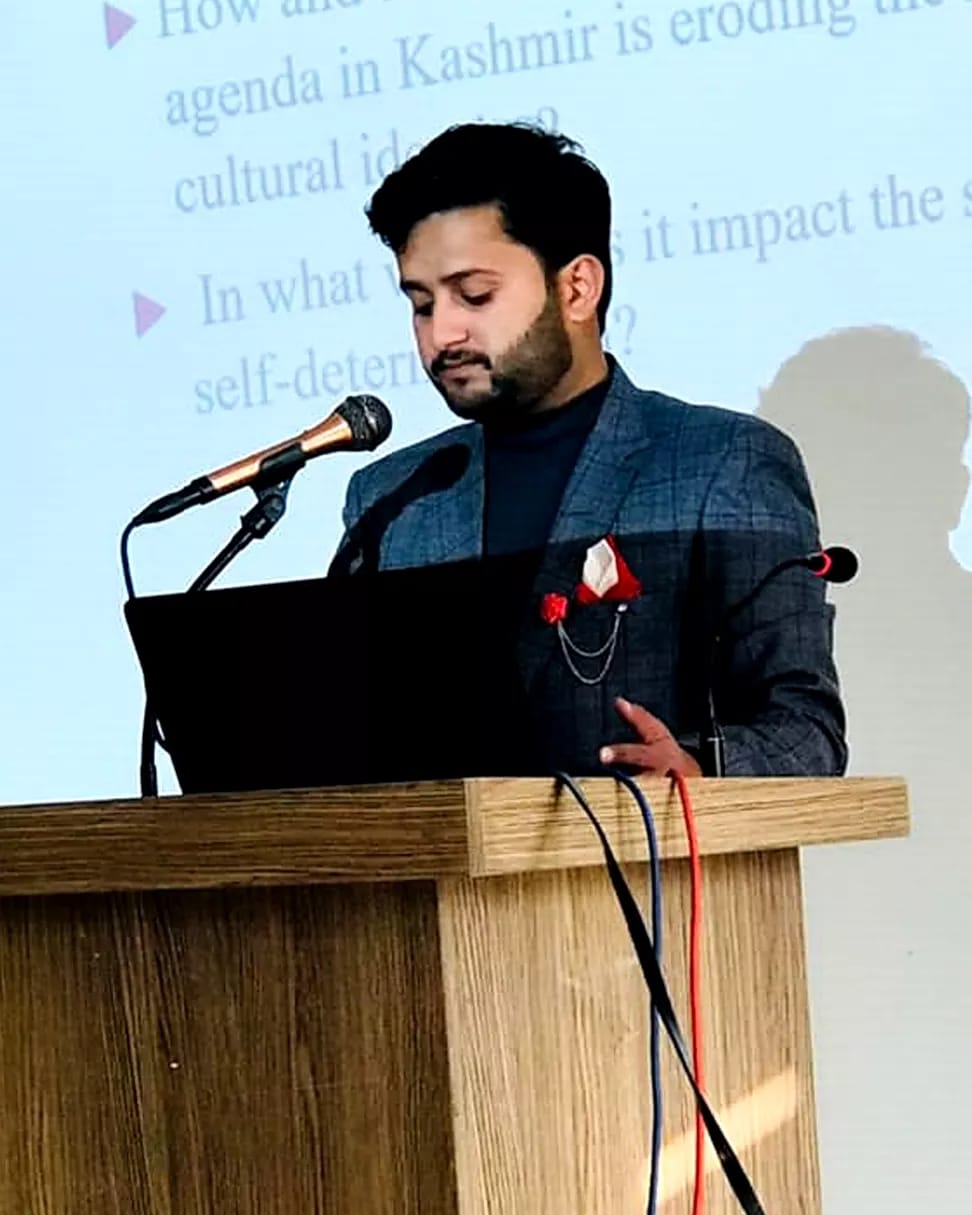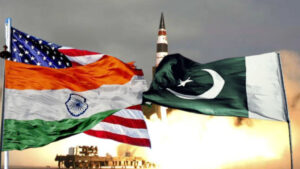By Syed Inam Ali Naqvi
The upcoming Shanghai Cooperation Organization (SCO) summit in Pakistan on October 15th and 16th presents a pivotal opportunity for the country to reshape its international image. However, this should not come at the cost of shutting down Islamabad to maintain law and order. Such actions may draw criticism, particularly from Indian media and officials, including the Indian Foreign Minister, who may use the summit as a platform to voice concerns against Pakistan. Not only may the political instability be a point of criticism for Pakistan, but foreign ministers and officials from other states joining the summit may also criticize the country for various aspects.
Firstly, Pakistan should be careful regarding discussions with Indian Foreign Minister Jaishankar, as in the Goa meeting last year, Bilawal Bhutto effectively countered India and nullified its claims on Kashmir and accusations of terrorism. This time, Jaishankar will be here with a solid strategy in mind, so Pakistani counterpart needs to be careful. Furthermore, the relationship between India and Pakistan is at a very low point, and Indian proxies are destabilizing Pakistan, potentially leading to unrest, terrorism, and hindering development projects. For instance, India is backing the BLA to destabilize Balochistan and jeopardize the CPEC. Still, due to India’s economic edge and increasing global influence, its heinous acts do not receive global criticism. Therefore, Pakistani decision-makers should be ready to counter the Indian Foreign Minister in a logical and authentic way, conveying a message of peace. This summit can improve the overall situation for Pakistan if it is approached tactfully.
Another key aspect should be a focus on the relationship with Iran, which has become an SCO member in 2023. It is possible that Iran, finding an advantage in the meeting, can open discussions on the Pakistan-Iran gas pipeline and the recent incidents of missile attacks between both countries. Again, Pakistan needs to adopt a wise strategy to convince Iran of a peaceful relationship because peace with neighbors is crucial for Pakistan’s national security—if not with India, then at least with other neighbors.
Thirdly, Pakistan needs to be thoughtful about refining its relationship with Russia, which has historically tilted toward India. This summit can be a good opportunity to foster economic and strategic partnerships. Policymakers can also consider collaboration in the energy sector. There must be a clear agenda for strengthening this relationship because Russian influence in this multipolar world cannot be denied.
Lastly, the relationship with China requires attention. Though both countries regard each other as all-weather friends, it is important to maintain this friendship for Pakistan’s benefit, whether strategically or economically. Due to increasing security crises, terrorism threats, BLA attacks, and political unrest, progress on CPEC could be affected, potentially leading to deterioration in relations with China. These concerns may also be raised by Chinese leadership at the summit, so Pakistan needs to be prepared on this front as well.
In short, this SCO summit presents both opportunities and challenges. Most importantly, a tactful consideration of these factors can open doors for progress; otherwise, the situation might worsen for Pakistan’s foreign policy goals. This is a crucial time for Pakistan to adopt a proactive diplomatic approach while reconsidering its strategic, political, and economic objectives, especially in balancing them amidst these challenges. Otherwise, this SCO summit will mean little for Pakistan.
The views expressed in this article are solely of the author, and do not necessarily reflect the views of The Global Politico
Facebook
Twitter
LinkedIn
VK
Telegram
WhatsApp
Email
Print
By Syed Inam Ali Naqvi
The upcoming Shanghai Cooperation Organization (SCO) summit in Pakistan on October 15th and 16th presents a pivotal opportunity for the country to reshape its international image. However, this should not come at the cost of shutting down Islamabad to maintain law and order. Such actions may draw criticism, particularly from Indian media and officials, including the Indian Foreign Minister, who may use the summit as a platform to voice concerns against Pakistan. Not only may the political instability be a point of criticism for Pakistan, but foreign ministers and officials from other states joining the summit may also criticize the country for various aspects.
Firstly, Pakistan should be careful regarding discussions with Indian Foreign Minister Jaishankar, as in the Goa meeting last year, Bilawal Bhutto effectively countered India and nullified its claims on Kashmir and accusations of terrorism. This time, Jaishankar will be here with a solid strategy in mind, so Pakistani counterpart needs to be careful. Furthermore, the relationship between India and Pakistan is at a very low point, and Indian proxies are destabilizing Pakistan, potentially leading to unrest, terrorism, and hindering development projects. For instance, India is backing the BLA to destabilize Balochistan and jeopardize the CPEC. Still, due to India’s economic edge and increasing global influence, its heinous acts do not receive global criticism. Therefore, Pakistani decision-makers should be ready to counter the Indian Foreign Minister in a logical and authentic way, conveying a message of peace. This summit can improve the overall situation for Pakistan if it is approached tactfully.
Another key aspect should be a focus on the relationship with Iran, which has become an SCO member in 2023. It is possible that Iran, finding an advantage in the meeting, can open discussions on the Pakistan-Iran gas pipeline and the recent incidents of missile attacks between both countries. Again, Pakistan needs to adopt a wise strategy to convince Iran of a peaceful relationship because peace with neighbors is crucial for Pakistan’s national security—if not with India, then at least with other neighbors.
Thirdly, Pakistan needs to be thoughtful about refining its relationship with Russia, which has historically tilted toward India. This summit can be a good opportunity to foster economic and strategic partnerships. Policymakers can also consider collaboration in the energy sector. There must be a clear agenda for strengthening this relationship because Russian influence in this multipolar world cannot be denied.
Lastly, the relationship with China requires attention. Though both countries regard each other as all-weather friends, it is important to maintain this friendship for Pakistan’s benefit, whether strategically or economically. Due to increasing security crises, terrorism threats, BLA attacks, and political unrest, progress on CPEC could be affected, potentially leading to deterioration in relations with China. These concerns may also be raised by Chinese leadership at the summit, so Pakistan needs to be prepared on this front as well.
In short, this SCO summit presents both opportunities and challenges. Most importantly, a tactful consideration of these factors can open doors for progress; otherwise, the situation might worsen for Pakistan’s foreign policy goals. This is a crucial time for Pakistan to adopt a proactive diplomatic approach while reconsidering its strategic, political, and economic objectives, especially in balancing them amidst these challenges. Otherwise, this SCO summit will mean little for Pakistan.
The views expressed in this article are solely of the author, and do not necessarily reflect the views of The Global Politico
Post Views: 604








